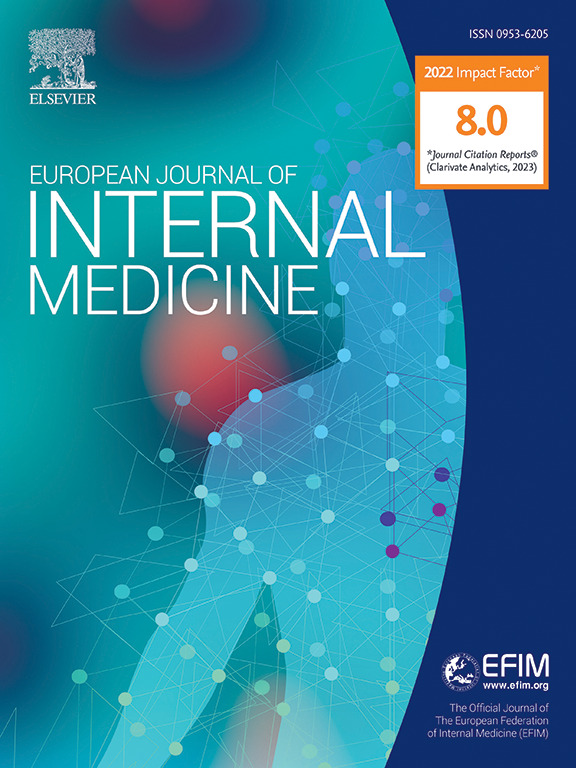Adverse effects of late sleep on physical health in a large cohort of community-dwelling adults
IF 5.9
2区 医学
Q1 MEDICINE, GENERAL & INTERNAL
引用次数: 0
Abstract
Aims
Sleep timing, influenced by chronotype, behavior, and circadian rhythms, is critical for human health. While previous research has linked chronotype to various health outcomes, the impact of aligning sleep timing with chronotype on physical health remains underexplored. The objective of this study is to investigate the association between chronotype, actual sleep timing, and their alignment with a spectrum of physical health outcomes.
Methods
Objective sleep timing (actigraphy, categorized as early, intermediate, or late) and chronotype (self-reported, categorized as morning, intermediate, or evening types) were derived from the UK Biobank (n=73,888 middle-aged and older adults) and used in cross-sectional and longitudinal analyses. Physical health outcomes included metabolic disorders, diabetes, obesity, hypertension, circulatory disorders, digestive disorders, respiratory disorders, and all-cause cancer based on ICD10 codes. Analyses were adjusted for demographic factors, sleep duration and sleep timing stability.
Results
As compared to morning types with early behavior (aligned), morning types with late behavior (misaligned) had an increased risk of all included physical health disorders (p's<0.001). As compared to evening-types with late behavior (aligned), however, evening-types with early behavior (misaligned) had a decreased risk of diabetes, obesity, hypertension, circulatory disorders, and respiratory disorders (p < 0.01). Longitudinal analyses, in which the likelihood of developing de novo physical health disorders was associated with chronotype, behavioral timing, and alignment between the two, confirmed cross-sectional findings.
Conclusion
Late sleep timing across chronotypes was consistently associated with adverse physical health outcomes. These findings underscore the importance of going to sleep early, regardless of preference.
晚睡对一大群社区居民身体健康的不利影响
目的:睡眠时间受时间型、行为和昼夜节律的影响,对人类健康至关重要。虽然以往的研究已将年代型与各种健康结果联系起来,但尚未充分探讨睡眠时间与年代型相一致对身体健康的影响。本研究的目的是调查时间型、实际睡眠时间以及它们与一系列身体健康结果之间的联系:客观睡眠时间(动图,分为早睡、中睡和晚睡)和时间型(自我报告,分为早睡、中睡和晚睡)均来自英国生物库(人数=73,888 名中老年人),并用于横截面和纵向分析。生理健康结果包括代谢紊乱、糖尿病、肥胖、高血压、循环系统疾病、消化系统疾病、呼吸系统疾病以及基于 ICD10 编码的全因癌症。分析对人口统计学因素、睡眠时间和睡眠时间稳定性进行了调整:结果:与行为早熟(一致)的晨型人相比,行为晚熟(不一致)的晨型人罹患所有身体健康疾病的风险都更高(P's):不同时间型的晚睡与不良的身体健康结果始终相关。这些发现强调了早睡的重要性,无论偏好如何。
本文章由计算机程序翻译,如有差异,请以英文原文为准。
求助全文
约1分钟内获得全文
求助全文
来源期刊
CiteScore
9.60
自引率
6.20%
发文量
364
审稿时长
20 days
期刊介绍:
The European Journal of Internal Medicine serves as the official journal of the European Federation of Internal Medicine and is the primary scientific reference for European academic and non-academic internists. It is dedicated to advancing science and practice in internal medicine across Europe. The journal publishes original articles, editorials, reviews, internal medicine flashcards, and other relevant information in the field. Both translational medicine and clinical studies are emphasized. EJIM aspires to be a leading platform for excellent clinical studies, with a focus on enhancing the quality of healthcare in European hospitals.

 求助内容:
求助内容: 应助结果提醒方式:
应助结果提醒方式:


